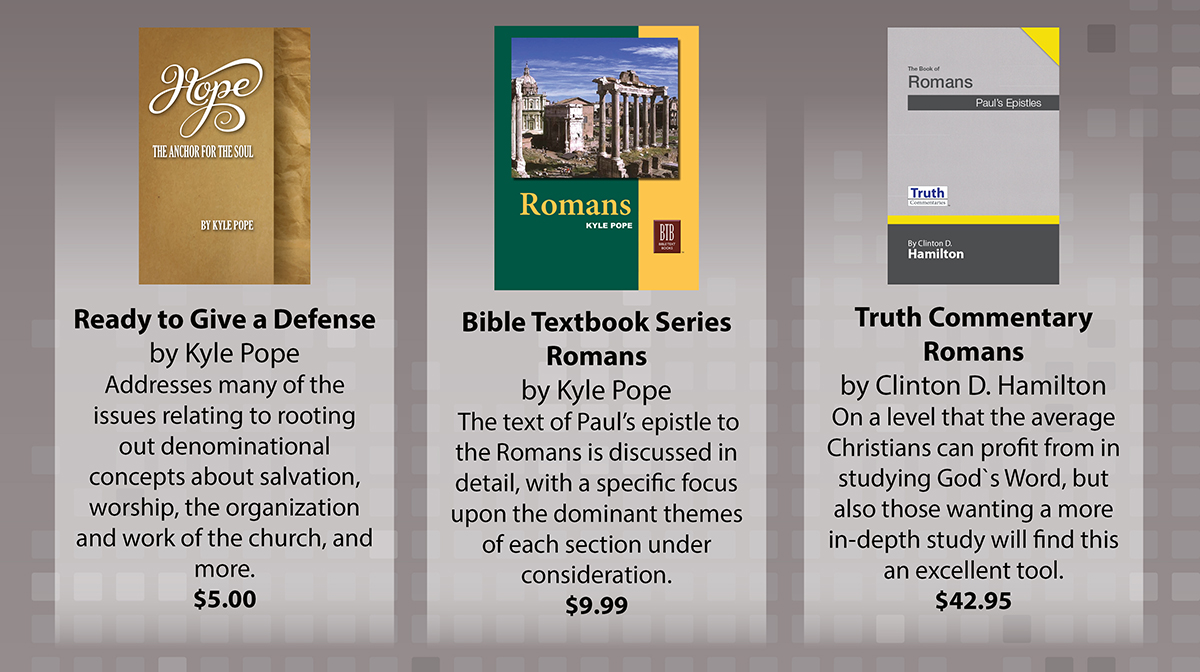
by Leon Mauldin
Synopsis: We each choose whether we will have a spirit of reverence and obedience to God’s Anointed or a spirit of rebellion and disobedience; God will judge us accordingly.
In this issue of Truth Magazine, other writers have given an overview and provided an analysis of Psalm 2, written by David (Acts 4:25). Undoubtedly, this psalm had application to the life of David himself (and perhaps other Davidic kings), but ultimately it finds its fulfillment in Christ.
“The psalm begins with the turmoil of the nations and ends with the blessing of those who trust in the Lord” (VanGemeren, Psalms. Vol. 5, 89). It is a Psalm that opens with the voice of rebellion and resistance to the divine will (vv. 1-3), followed by the Father’s response. His determinate counsel and foreknowledge would install Christ upon the throne (vv. 4-6). Then the Son Himself speaks and tells of the decree, one which is quoted several times in the New Testament (vv. 7-9; cf. Heb. 1:5; 5:5; Acts 13:13). The psalm concludes with exhortations, which contain both warning and encouragement (vv. 10-12). Our assigned verses read:
Now therefore, be wise, O kings; be instructed, you judges of the earth. Serve the LORD with fear, and rejoice with trembling (Ps. 2:10-11, NKJV).
Though our text is initially addressed to the kings (Heb. melek), rulers (Heb. razan), and judges (Heb. shaphat) of the earth, that is, those who reign, judge, or govern, the application is universal. “Now, therefore,” prepares the reader for the application of the preceding verses. It is a concluding exhortation filled with imperatives, commands that must be obeyed. The reader is called upon to: “Be wise,” “be instructed” (“warned,” ESV), “serve,” and “rejoice.”
What could be more foolish than to set oneself up in opposition to the Lord? This is the purpose of Scripture: to make us wise unto salvation! Paul reminded Timothy, “From childhood, you have known the Holy Scriptures, which are able to make you wise for salvation through faith which is in Christ Jesus” (2 Tim. 3:15)
Instruction (v. 10) comes before service (v. 11). God lamented through the prophet Hosea, “My people are destroyed for lack of knowledge” (4:6). Isaiah foretold, “By His knowledge, My righteous Servant shall justify many, for He shall bear their iniquities” (53:11). The religion of Christ is a taught religion, as Jesus explained: “It is written in the prophets, ‘And they shall all be taught by God.’ Therefore everyone who has heard and learned from the Father comes to Me” (John 6:45). Zeal without knowledge does not profit (Rom. 10:2-3).
Deep and profound reverence for God permeates both the Old and New Testaments. The fear of the Lord is the beginning of knowledge (Prov. 1:7). The fear of the Lord is the beginning of wisdom (Prov. 9:10). This is the kind of fear referenced by the writer of Hebrews: “Therefore, since we are receiving a kingdom which cannot be shaken, let us have grace, by which we may serve God acceptably with reverence and godly fear” (Heb. 12:28). We serve the LORD as we submit to His Son, the King whom He has anointed, the Messiah. At Jesus’s transfiguration on the “holy mountain,” the Father would affirm, “This is My beloved Son, in whom I am well pleased. Hear Him!” (Matt. 17:5).
Wiersbe observes, “True believers know what it means to have both fear and joy in their hearts. Love for the Lord casts out sinful fear (1 John 4:18) but perfects godly fear. We love our Father but still respect His authority” (Be Worshipful, 20). It is wise to bear in mind that it is a fearful thing to fall into the hands of the living God (Heb. 10:31).
Spurgeon wrote, “There must ever be a holy fear mixed with the Christian’s joy. This is a sacred compound, yielding a sweet smell, and we must see to it that we burn no other upon the altar. Fear, without joy, is torment; and joy, without holy fear, would be presumption” (Treasury of David, Vol. 1, 13). Perhaps we see here a combination of Proverbs 28:14, “How blessed is the man who fears always” (NASB; cf. NKJV: “Happy is the man who is always reverent”), with Philippians 4:4, which commands, “Rejoice in the Lord always. Again I will say, rejoice!”
It is the true fear of the LORD that cultivates spiritual joy. The fear of the Lord is united with the comfort of the Holy Spirit (Acts 9:31). On the day of the Lord’s resurrection, after they saw the angel, Mary Magdalene and the other Mary “went out quickly from the tomb with fear and great joy, and ran to bring His disciples word” (Matt. 28:8).
Our God has no pleasure in the death of the wicked (Ezek. 33:11). He wants all to come to repentance, not to perish (2 Pet. 3:9). He would have all men to be saved and to come to the knowledge of the truth (1 Tim. 2:4).
Verse 12 speaks of the wrath of God which will be directed toward those who refuse to have God in their knowledge, who refuse to acknowledge His sovereignty. The reality is that because Jesus is Lord and King, and as such has all authority in heaven and on earth, He has the right to tell us what to do with our lives, in every aspect and without exception! “For your own sakes desist from attempts at rebellion” (Spence-Jones, 12).
We can choose reverence, reverence for our Creator and King. Even the stork knows that! “Even the stork in the heavens knows her appointed times; and the turtledove, the swift, and the swallow observe the time of their coming. But My people do not know the judgment of the LORD” (Jer. 8:7). The only wise response on our part is a spirit willing to receive God’s revelation about His Anointed and His kingdom. The only wise response is a joyous spirit of submission to Him whose will is for our good always (Deut. 6:24). The result of reverence is blessing: “Blessed are all those who put their trust in Him” (Ps. 2:12). Yet, the righteous judgment of God will be meted out to the disobedient. “but for those who are self-seeking and do not obey the truth, but obey unrighteousness, there will be wrath and fury” (Rom. 2:8, ESV).
Though this psalm is addressed to kings and judges, plural, we will each stand before God as individuals. “If you are wise, you are wise for yourself, And if you scoff, you will bear it alone” (Prov. 9:12). My friend, choose wisely; choose life, that you may live (Deut. 30:19-20). 
Spence-Jones H. D. M., ed. The Pulpit Commentary: Psalms, Vol. 1. London; New York: Funk & Wagnalls Co., 1909.
Spurgeon, C. H. The Treasury of David: Psalms 1-26. London; Edinburgh; New York: Marshall Brothers, (n.d.).
VanGemeren, W. A. Psalms. In The Expositor’s Bible Commentary: Psalms (Rev. Ed.) Vol. 5. Rev. Ed. Edited by T. Longman III & D. E. Garland. Grand Rapids, MI: Zondervan, 2008.
Wiersbe, Warren. W. Be Worshipful. Colorado Springs, CO: Cook Communications Ministries, 2004.


